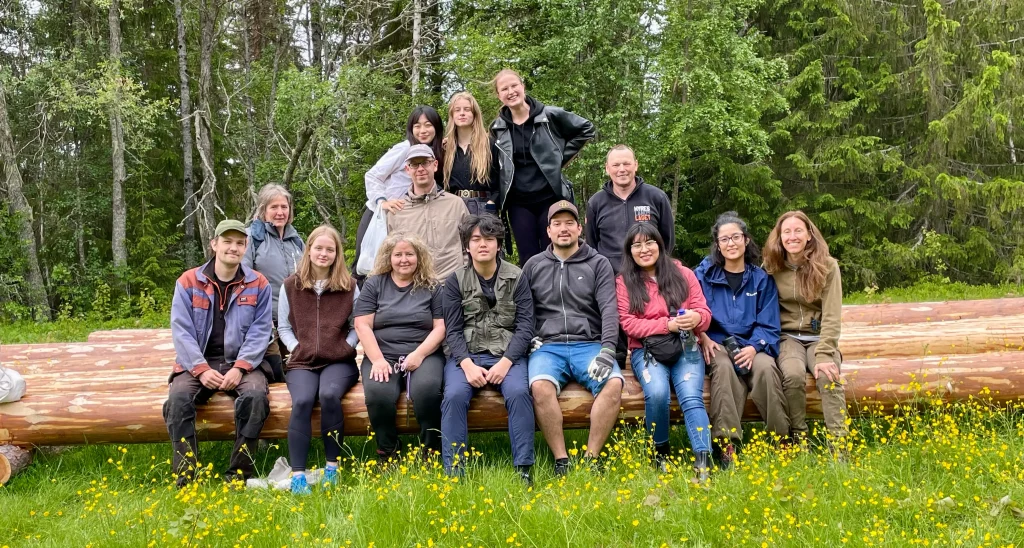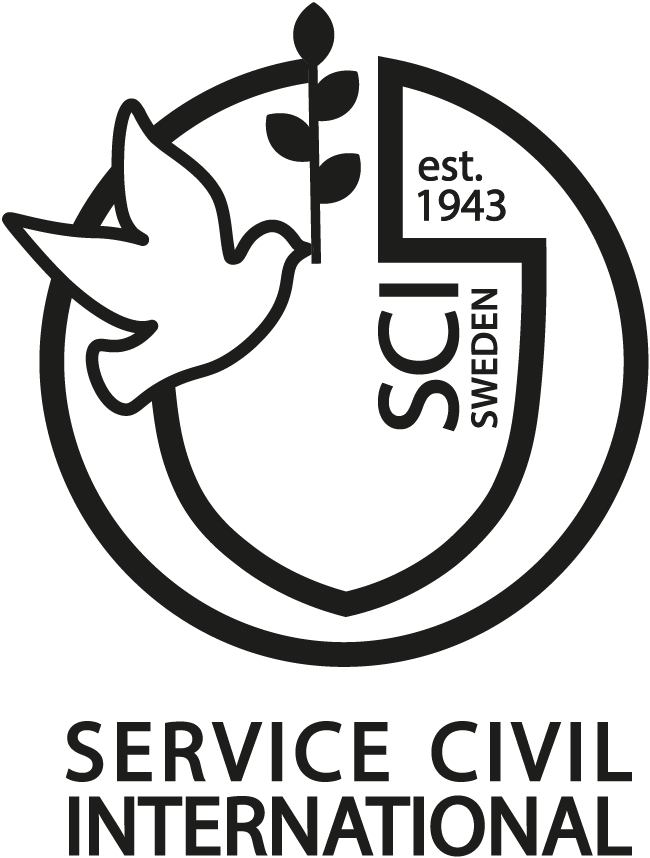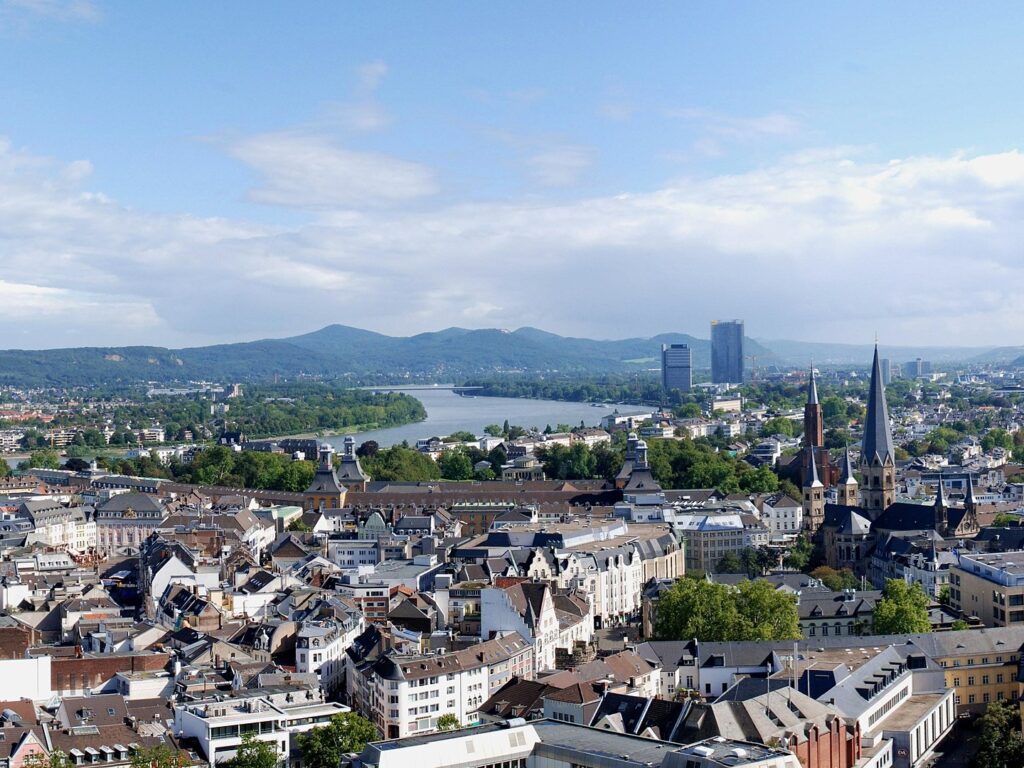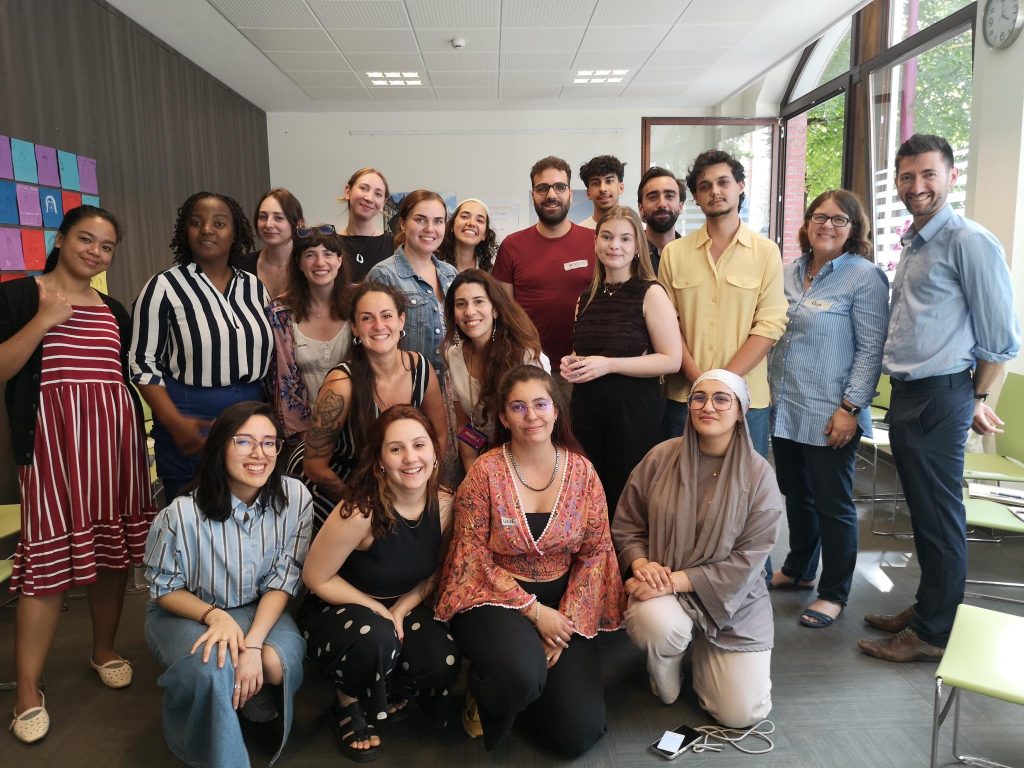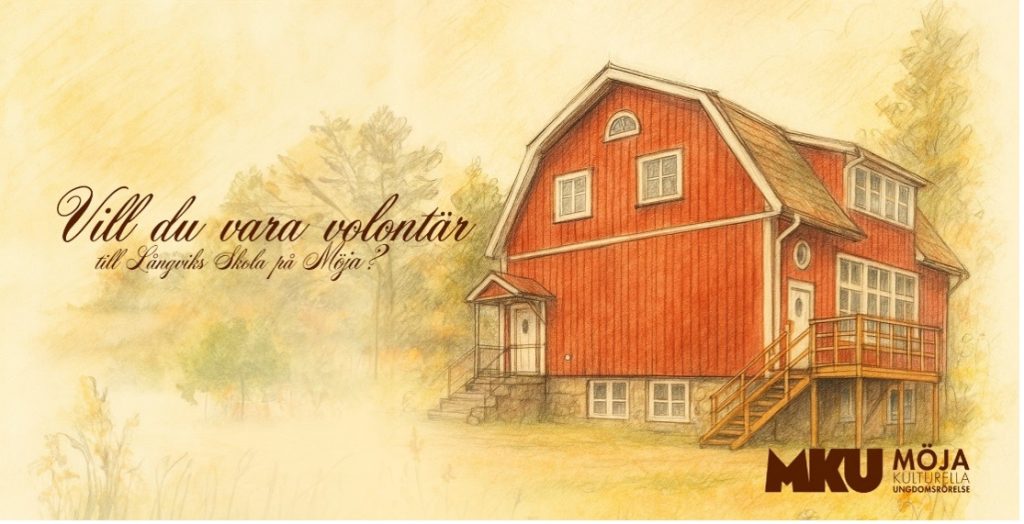Between June 15 and 27, 2025 , IALs member Wiktoria led the summer camp at Bäckedals Folk High School. Today, she will share her thoughts and experiences—how the workcamp went, what the volunteers did, what the whole experience was like, and much more.
Seminar in Bad Nauheim, Germany
This year’s workcamp was led by two camp leaders—me, Wiktoria from IAL, and Freja from Bäckedals Folk High School. We met Freja in May in Germany where we both attended the Workcamp Coordinator Seminar in Bad Nauheim. This seminar was a fantastic opportunity for us to not only get to know each other and discuss the upcoming workcamp, but also learn a lot about the skills needed to become a camp leader.
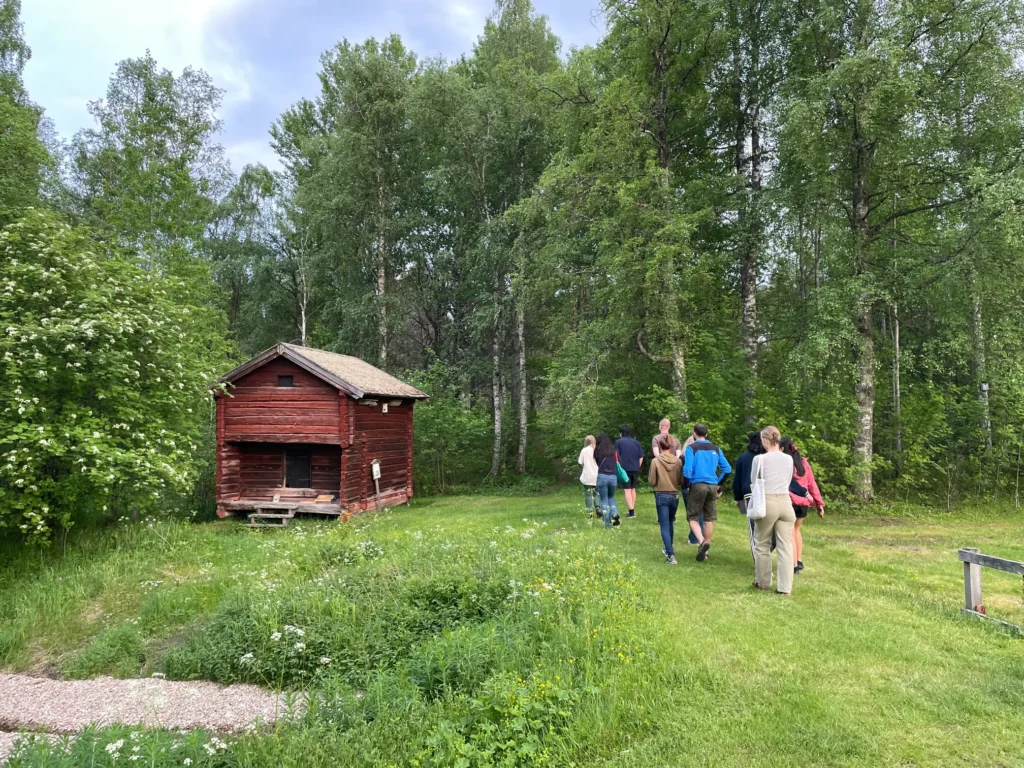
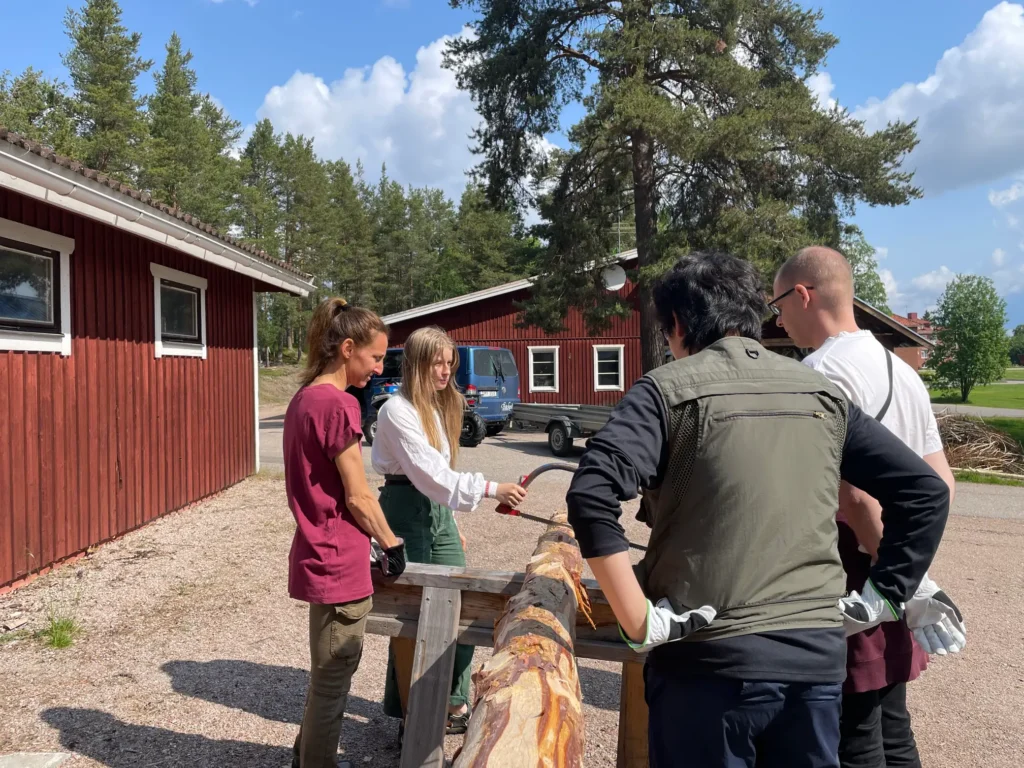
From the beginning we were able to get on very well with Freja. Even though we hadn't known each other for long, we quickly understood what was expected of us as camp leaders. Neither Freja nor I had led the camp before, so it was necessary for us to learn as much as possible before the camp itself.
The seminar in Germany lasted five days. It was five days filled with workshops, activities, team building, learning by doing and most of all, fun. We were able to connect with people from all over the world—and we still do.
About Bäckedals Folk High School and activities
Bäckedals Folk High School is a school focused on adult education. The institute is located in Härjedalen, a mountainous and sparsely populated region in northern Sweden. Bäckedals school offers general programs for basic eligibility for higher education and specialised programs in traditional skills and crafts. Leather, metal and textile processes, from ancient times to modern times, form the core of most courses, along with sustainable living, democratic values and man's historical relationship with nature.
This year's workcamp was organised at Bäckedals Folk High School. Our volunteers lived in the school premises throughout the camp, sharing rooms of two people. However, the majority of the work carried out during the workcamp took place outdoors.
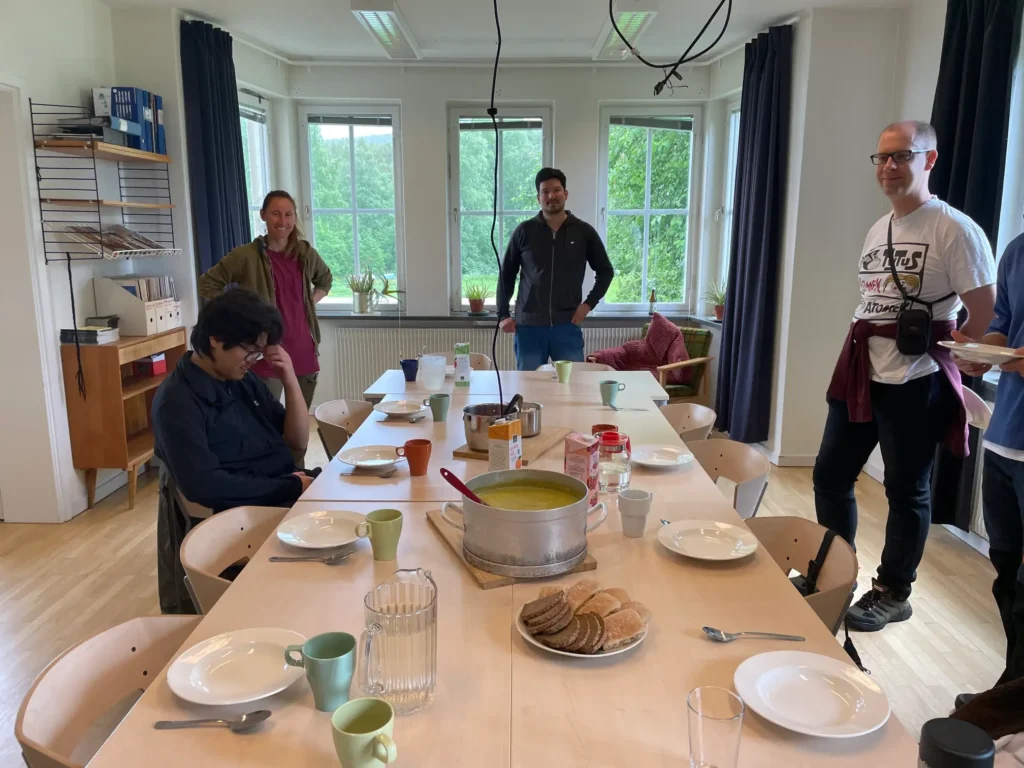
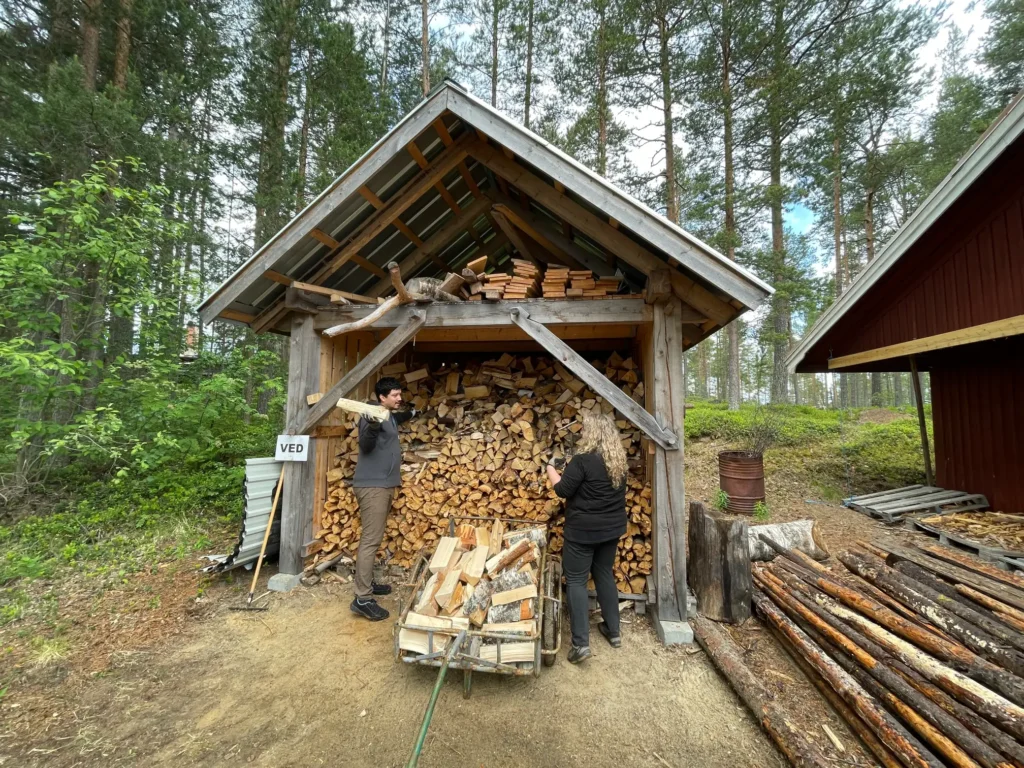
The workcamp included practical tasks aimed at improving and maintaining facilities adjacent to Bäckedals Folk High School. Volunteers engaged in a variety of activities that supported both the school environment and its surrounding natural areas. The work at Bäckedal included construction, repair, maintenance, cleaning and painting. There was also some gardening work such as tree cutting, hedge trimming and planting. Some of the work was carried out at Bäckedals’ recently acquired forest cabin, Jo Jonsvallen, located outside Älvros, about a half-hour drive from the school area.
About volunteers and group rules
This year’s workcamp had ten volunteers (4 men, 6 women) from seven countries. We had two volunteers from Japan, two volunteers from Mexico, two volunteers from Italy, and one volunteer from each of the following countries: Sweden, Poland, Switzerland, and Spain. And let me tell you, it was a mix! We had volunteers as young as 18 to slightly older and more experienced volunteers, between the ages of 41 and 56. The cultural mix allowed us to learn about each other’s countries, customs, traditions, food, and music.
We wanted the volunteers to learn as much as possible about their countries and each other. On the first day of the camp, we made a room allocation with the goal of placing volunteers from different countries in the same room. We also agreed that the language of the camp would be English and encouraged the volunteers not to use their native language when interacting in a group.
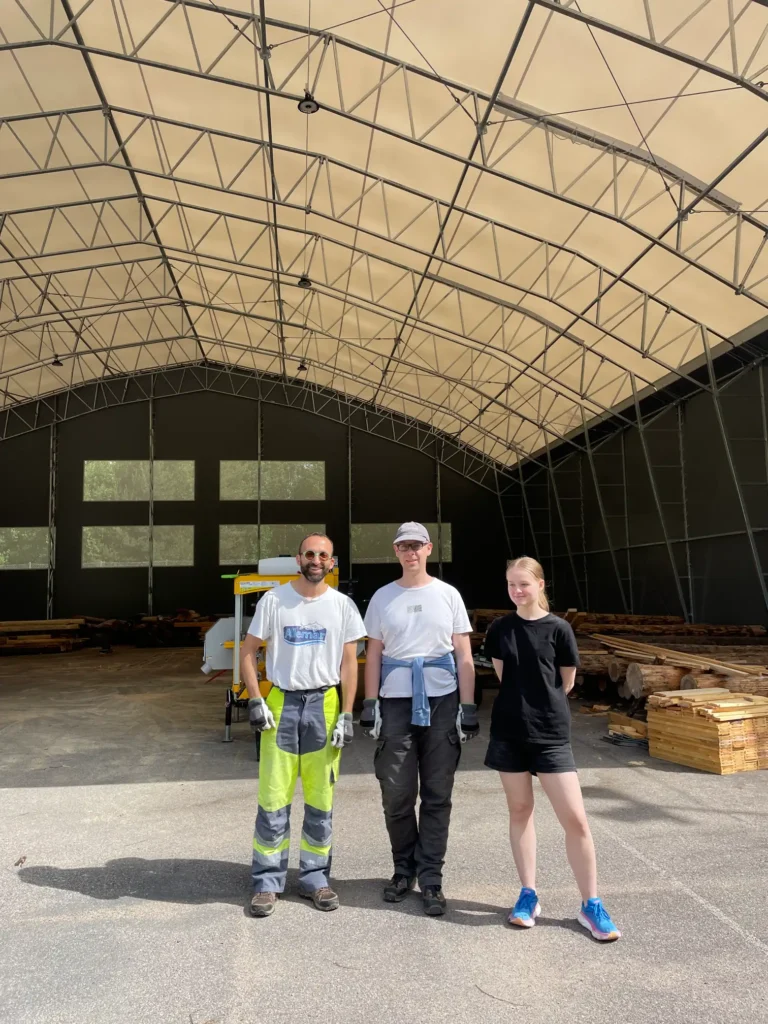
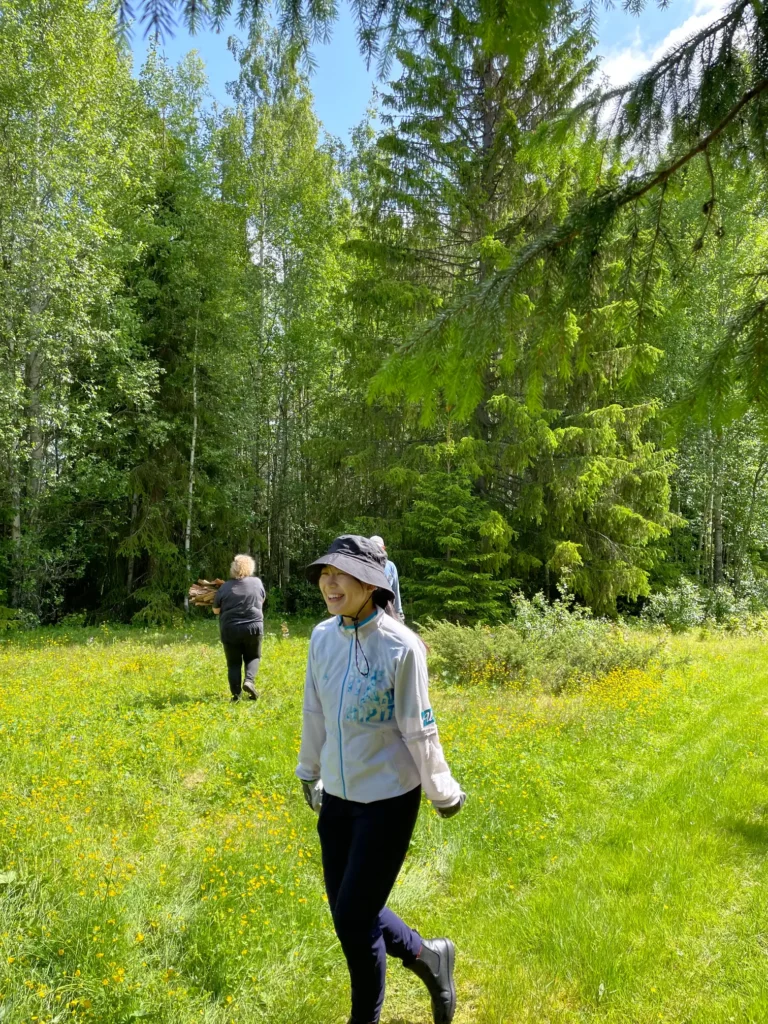
SCI stands for self-organization, which means that volunteers are responsible for planning, coordinating, and implementing their own activities, making decisions together and fostering an environment of mutual respect, autonomy, and shared responsibility. Throughout the camp, we encouraged the team to make decisions together. For example, we expressed the need to come up with a cooking schedule and suggested that each person write their name three times in any slot, ideally so that they can cook a breakfast, lunch, and dinner.
To keep the atmosphere positive and inclusive, we encouraged flexibility—volunteers were welcome to try different tasks, rotate work teams, and explore different roles throughout the day. The focus wasn’t on productivity or strict outcomes, but on contributing meaningfully, learning by doing, and enjoying the experience together. We emphasised the importance of having fun while working, building friendships, and discovering new skills, all of which helped create a motivating and collaborative environment.
Highlights of the workcamp
Describing every day of the workcamp would take forever, so it's better to present a few highlights—events and activities that stood out and were most appreciated by our volunteers.
Since the school was located in the middle of nature, the majority of the volunteers’ activities also took place outdoors. On the first day of the camp, we organised a 1.5-hour hike to the nearby mountain, and after the walk, some of us went to the sauna. The sauna was definitely one of the highlights of the work camp, as it was something quite new for the volunteers—and they loved spending their evenings there after days full of work.
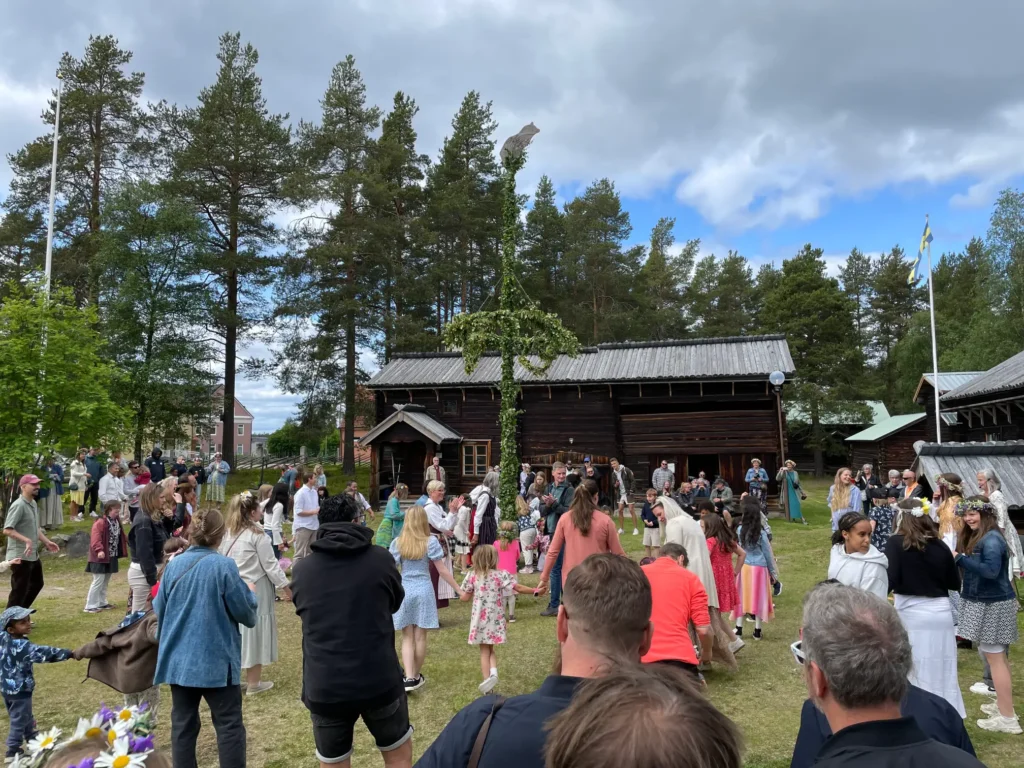
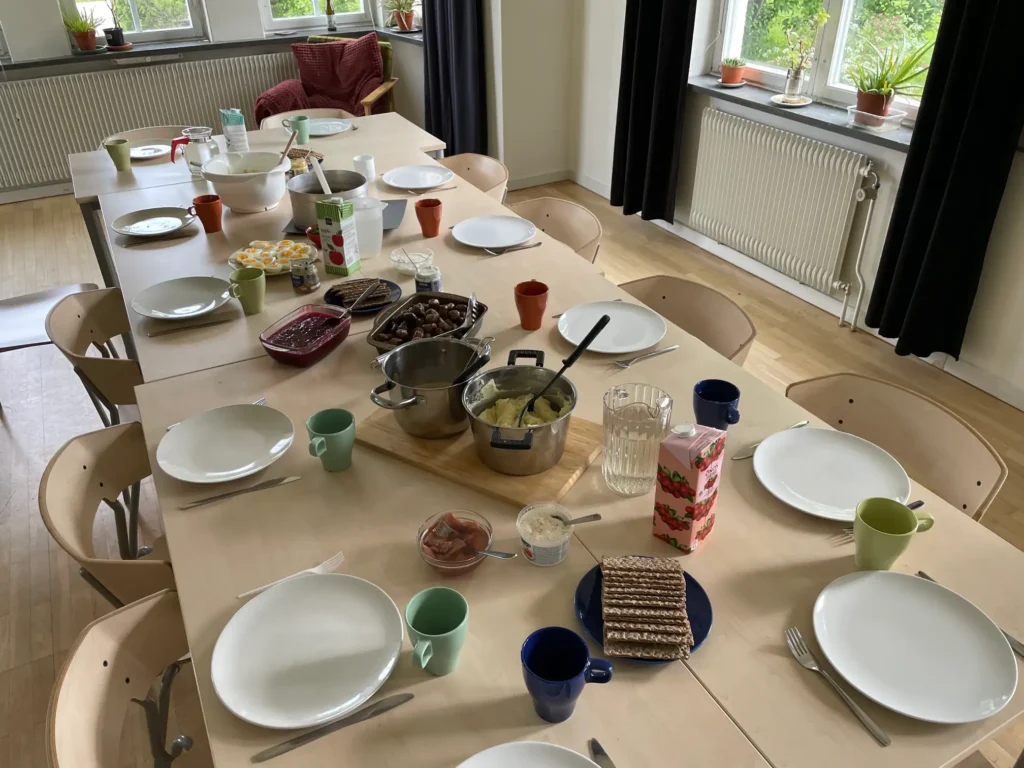
Although the majority of the work was done in Bäckedal, we also went to Jo Jonsvallen for a few days—and the volunteers loved it! Jo Jonsvallen is literally in the middle of nowhere, pure nature, forests and green spaces. It was an opportunity for the volunteers to relax, eat food cooked over the fire and rest not by sitting in chairs, but by lying on the grass.
On day 6, all volunteers and camp leaders went to the traditional Midsummer celebration. We went to the city center to participate in the traditional singing and dancing, and in the afternoon we went to a local café where the volunteers had the chance to try typical Swedish pastries. In the evening, Freja and I cooked a traditional Swedish dinner with meatballs, mashed potatoes, lingonberry jam, pickled herring with boiled eggs, boiled potatoes, crispy bread and sour cream.
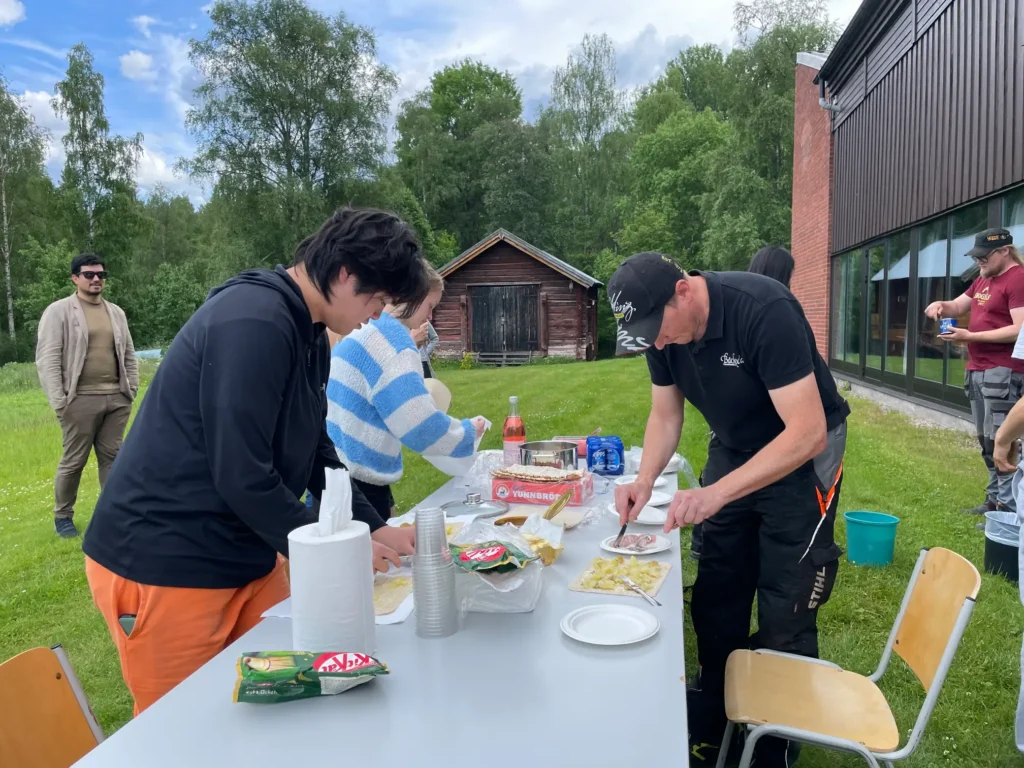
The last working day of the camp (day 12) was definitely one to remember. In addition to completing the work and cleaning up a lot, the volunteers got the chance to try sour herring prepared by two teachers from the school. The volunteers got the chance to see how to open a fish, how to cook it and eat it the Swedish way.
What to remember
Both Freja and I consider this year’s camp to have been a great success. Apart from the minor and major problems we had, we believe we did our best job. The volunteers expressed their gratitude for being able to try so many Swedish dishes and traditions that they were not familiar with before. Our main goal, besides coordination, was to be able to show the volunteers the Swedish way of living, working and cooking. And everyone said the following—from now on they will introduce Fika into their everyday routines.
